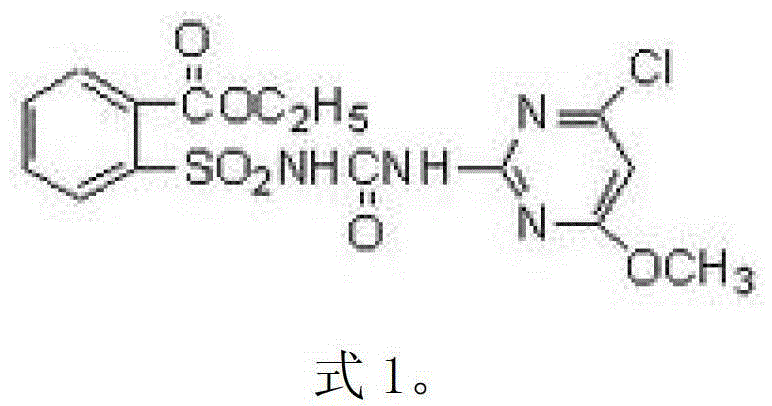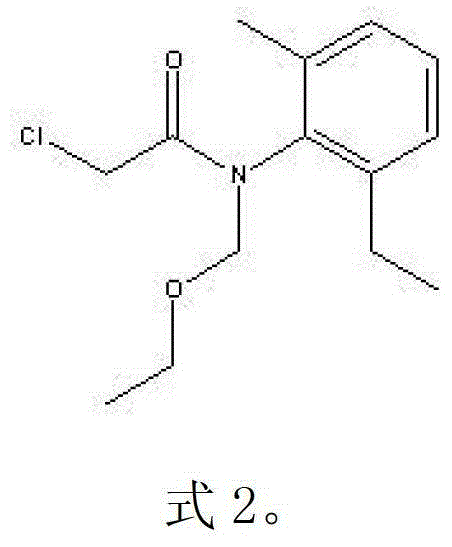Bacterium for degrading herbicides chlorimuron-ethyl and acetochlor and application of bacterium
A technology of chlorsulfuron-methyl and acetochlor, applied in the direction of bacteria, microorganism-based methods, restoration of polluted soil, etc., can solve the problems of aging of branches and stem bases, plant dwarfing, slow plant growth, etc.
- Summary
- Abstract
- Description
- Claims
- Application Information
AI Technical Summary
Problems solved by technology
Method used
Image
Examples
Embodiment 1
[0039] Example 1. Isolation and identification of Cellulosimerbium sp. LY1114CGMCC No.7776
[0040] 1. Isolation of herbicide-degrading bacteria LY1114
[0041] Add 10 g of soil samples (collected from farmland polluted by the herbicide acetochlor in Shandong Province, China) to 100 mL of enrichment culture solution containing 20 mg / L of chlorimuron-methyl, and culture at 28°C and 180 r / min for 7 days to enrich for chlorimuron-methyl Sulfur-methyl-degrading bacteria. After the first round of enrichment, 10 mL of the enrichment solution was transferred to 100 mL of the enrichment medium containing 40 mg / L of chlorimuron-methyl, and the culture was continued for 7 days for the second round of enrichment. Such continuous enrichment and culture for 5 times, the concentrations of chlorimuron-methyl were 20, 40, 60, 80 and 100 mg / L in turn.
[0042] The screening of degrading bacteria adopts the plate transparent circle method. Add chlorimuron-methyl to inorganic salt solid medium ...
Embodiment 2
[0061] Example 2, Quantitative determination of the ability of Cellulosimerbium sp. LY1114CGMCC No.7776 to degrade the herbicides chlorimuron-methyl and acetochlor
[0062] 1. Preparation of standard curve for the determination of chlorimuron-methyl
[0063] Use methanol to prepare chlorimuron-methyl standard substance (purchased from Fluka Company) into a series of standard solutions with concentrations of 10, 20, 40, 60, 80, and 100 mg / L, and use high performance liquid chromatography (HPLC) to determine different concentrations of chlorimuron-methyl The peak area of the standard was repeated three times. With the concentration of chlorimuron-methyl as the abscissa and the peak area as the ordinate, draw the chlorimuron-methyl standard curve.
[0064] The detection conditions are as follows:
[0065] Detection system: Agilent1100Series. Chromatographic column: C18Diamosil TM Reversed-phase column, 250mm×4.6mm, particle size 5μm. Chromatographic conditions: mobile phas...
PUM
 Login to View More
Login to View More Abstract
Description
Claims
Application Information
 Login to View More
Login to View More - R&D
- Intellectual Property
- Life Sciences
- Materials
- Tech Scout
- Unparalleled Data Quality
- Higher Quality Content
- 60% Fewer Hallucinations
Browse by: Latest US Patents, China's latest patents, Technical Efficacy Thesaurus, Application Domain, Technology Topic, Popular Technical Reports.
© 2025 PatSnap. All rights reserved.Legal|Privacy policy|Modern Slavery Act Transparency Statement|Sitemap|About US| Contact US: help@patsnap.com



